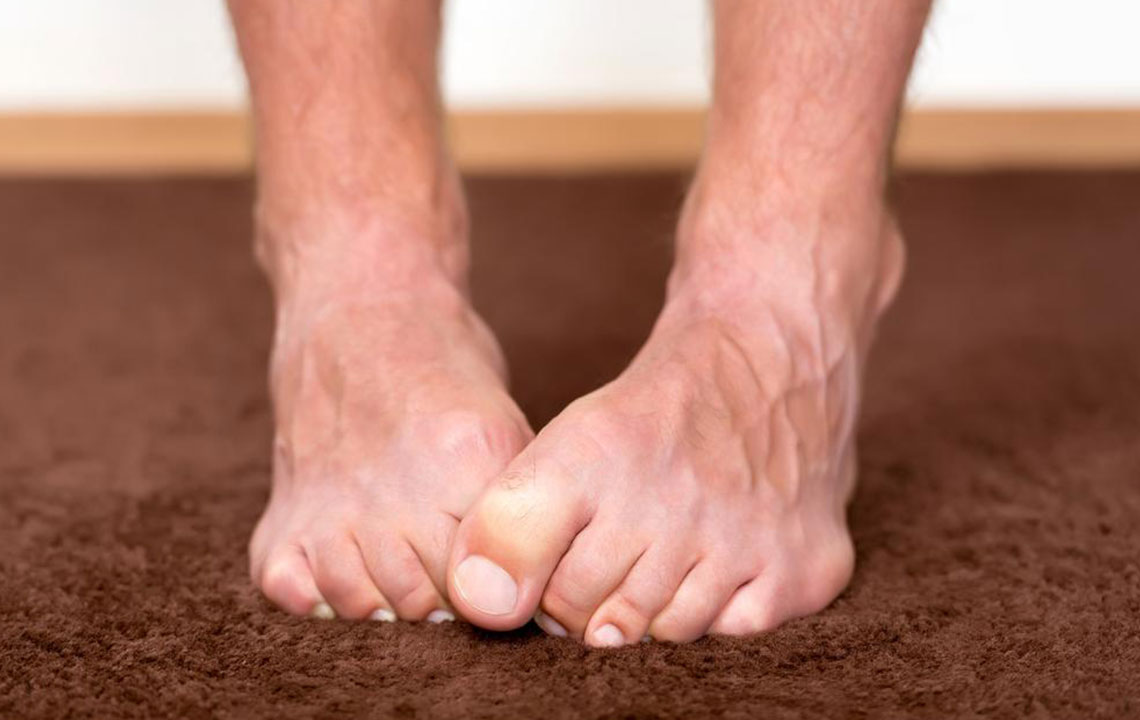Understanding Foot Neuropathy: Symptoms, Causes, and Management Strategies
Foot neuropathy involves nerve damage causing tingling, numbness, pain, and weakness in the feet. It can result from diabetes, injuries, vitamin deficiencies, or medications. Proper diagnosis and management, including lifestyle changes and medical treatment, are essential for relief and preventing further damage. Protect your feet, maintain healthy habits, and seek medical advice if symptoms persist to ensure optimal foot health.

Understanding Foot Neuropathy: Symptoms, Causes, and Management Strategies
The nervous system plays a vital role in controlling and coordinating body functions. It links the brain and spinal cord to various parts like the feet, legs, hands, and face, transmitting signals that keep us active and aware.
Peripheral neuropathy involves nerve damage, disrupting normal nerve activities. This damage may result from infections, injuries, or inherited conditions, leading to abnormal nerve signals, often causing pain and discomfort.
This condition impacts sensory, motor, and autonomic nerves. Sensory nerves connect to the skin, while autonomic nerves control internal organs, and motor nerves influence muscle movements. Damage hampers their functions.
Common Signs of Foot Neuropathy:
Numbness and loss of sensation
Thin, fragile skin
Digestive issues such as constipation and diarrhea
Drop in blood pressure
Excessive sweating in the feet
Leg heaviness and difficulty moving
Factors Contributing to Foot Neuropathy:
Various elements can cause nerve damage in the feet. Family history considerations, diabetes, obesity, hypertension, vitamin deficiencies, kidney disease, thyroid problems, injuries, prolonged pressure, alcohol consumption, infections, or medication side effects are significant contributors.
Chronic diabetes is a common cause, leading to nerve degeneration and pain. Obesity, high blood pressure, vitamin shortages, or toxin buildup from kidney issues also harm nerves. Injuries, repetitive pressure, alcohol abuse, infections, and certain medications can trigger or worsen symptoms.
To diagnose neuropathy, doctors typically perform physical exams, blood tests for blood sugar and thyroid levels, imaging like CT scans for tumors or herniated disks, electromyography to measure muscle electrical activity, nerve conduction tests, or nerve biopsies.
Managing and Treating Foot Neuropathy:
Effective treatment depends on identifying and addressing the underlying cause. Managing blood sugar levels, correcting nutritional deficits, or stopping offending medications are crucial steps. Pain relief can be achieved with anti-inflammatory drugs, antiepileptics, or narcotics under medical supervision.
Precautionary measures include protecting feet with proper footwear, avoiding walking barefoot, checking water temperature before baths, ensuring safe walking surfaces, and preventing falls with mats. Regular movement, balanced diet, physical activity, and avoiding smoking and alcohol can help prevent neuropathy.
Proper foot hygiene—washing and moisturizing—also supports foot health. Promptly visiting a healthcare provider for severe or persistent symptoms is recommended to maintain well-being.










